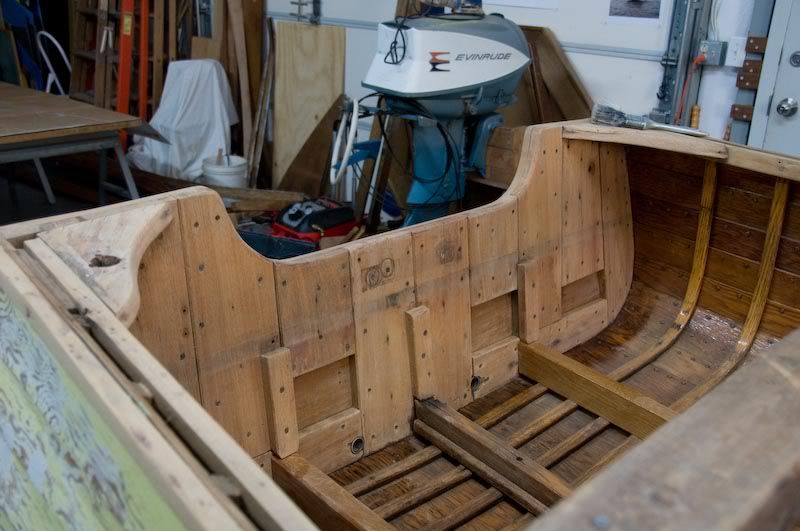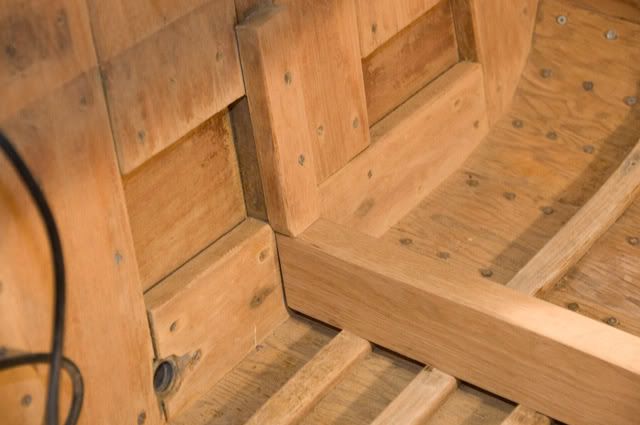Page 1 of 1
Cruisers Transom
Posted: Sun Sep 18, 2011 5:18 am
by vernonfarmer
Why did Cruisers build their transoms with beveled edge blocks on the interior? And why the did they leave those spaces open? (Pics are not my boat, but mine has the same transom construction.)
John


Posted: Mon Sep 19, 2011 4:45 am
by LancerBoy
That's just the way the built 'em. Thompson of Peshtigo also eased the edges of the vertical boards on the interior to the transom. The smaller boats had those open spaces too. Not the bigger ones.
I do not know why.
Andreas
Re: Cruisers Transom
Posted: Tue Nov 05, 2013 9:47 am
by thegammas
Yes, I am laid up and bored and re-reading all the Thompson history stuff
I bet it was just to simplify assembly and finishing, and maybe then aesthetics. Much more effort to cut the blocks to fit tight after assembly and then sand to a flat surface. so that edges of blocks side by side were not proud of each one another. Unless the blocks were to be edge glued, it adds no strength to do so. So simply bevel them, not worry about a gap, and away you go.
Re: Cruisers Transom
Posted: Tue Nov 05, 2013 2:34 pm
by LancerBoy
I know that at Peshtigo they assembled the transom and then sent the entire thing thru a big wide belt sander to smooth it. Sort of like a "Timesaver" sander I guess. I wonder if it was a single sided sanded? So they flipped it over turned it 90 degrees and then ran it thru on the opposite face?
In the hey day Cruisers, Inc. was making over 3,000 boats annually. So they built 'em quickly. Thompson at Peshtigo typically built 5,000 boats a year; 8,000 in their peak year.
Andreas
Re: Cruisers Transom
Posted: Sat Nov 09, 2013 2:20 pm
by Phill Blank
From a wood workers point of view a few things I noticed are that the interior pieces at the bottom of the transom have there grain running parallel to the bottom of the transom, which would give you better screw holding power rather then if it were end grain. The pieces running vertically give good screw purchase on the sides of the transom for the planking as well as stabilizing the whole transom assembly with the crossed gains.
Looking at this from the stand point of using every possible scrap of wood to save costs, in using these short piece the ends or voids are only visible below the splash well. The old "out is site or of mind" trick.
The eased edges not only look neat, but allow for any slit imperfections in the joints between these board to disappear.
As Andreas said the main goal was to get these boats out the door as fast and cheaply as they could with still having them look good when viewed by the purchasers eyes.
Phill



